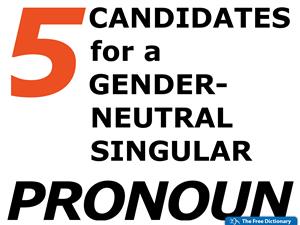Noun Phrases
What is a noun phrase?
Noun phrases are groups of two or more words within a sentence that function grammatically as nouns. They consist of a noun and other words that modify the noun. Some grammarians also consider a single-word noun to be a noun phrase, while more traditional grammars hold that a phrase must be made up of two or more words. In this guide, we define a phrase as being made up of more than one word.
Noun phrases can also have pronouns as their structural base, which we will examine later in this section.
Identifying noun phrases
Noun phrases allow groups of words to function as a noun in the sentence. In this way, nouns can be elaborated upon or modified to add further depth to the sentence without losing their structural role.
The following sentence contains a basic, single-word noun, without any modifiers:
- “Whales swim.”
In this sentence, the word “whales” functions alone as the noun. Because there are no modifiers to create a noun phrase, the reader receives no additional information about “whales.”
The following sentence contains a noun phrase with modifiers:
- “He brought the shovel with the blue handle.”
In this sentence, “the shovel with the blue handle” is a noun phrase. It collectively acts as a noun while providing modifying words for the head noun, “shovel.” The modifiers are “the” and “with the blue handle.”
Here are some other examples of sentences with noun phrases marked in italics (the primary nouns being modified are underlined):
- “The tall mountain was very large.”
- “The highway at rush hour can be frantic.”
- “The oranges that fell from the orange tree are delicious.”
A good way to test whether or not a phrase is a noun phrase is to replace the phrase with a pronoun and see if the sentence is still grammatically correct. For example, in all three examples provided above, the noun phrase can be successfully replaced with a pronoun:
- “It was very large.”
- “It can be frantic.”
- “They are delicious.”
Noun phrases of varying length
Noun phrases can be as short as two words, or they can be longer and have many words; the number of words in a phrase does not affect its status as a noun phrase, so long as it functions as a noun in the sentence. For example, the following sentences contain one very short noun phrase, and one very long noun phrase:
- “The man sat down.”
- “The forty-five year old man with brown hair and a black shirt sat down.”
Despite their difference in length, both phrases in italics function as nouns.
Noun phrases within noun phrases
You may have noticed that many of the sentences above contain multiple noun phrases. It is very common for a smaller noun phrase to occur within a larger one, acting as part of the modifying information. For instance, the second sentence above actually has three noun phrases, two of which are contained within the longer one. Let’s look at the sentence again, this time underlining each noun being modified and putting the smaller phrases in bold.
- “The forty-five year old man with brown hair and a black shirt sat down.”
Here are some more examples of sentences with noun phrases inside of other noun phrases:
- “They passed an orange bus driven by a jolly old man wearing a lady’s wig on the highway.”
- “Please hand me the book with the torn cover.”
Modifiers
Position of modifiers
Sometimes the words that modify the noun come before the noun in the phrase, and sometimes they come after. For example, in the following sentence, the modifiers come before the noun:
- “Dogs often like to chase high-flying Frisbees.”
In this next sentence, the modifiers come after the noun:
- “Trucks with red stripes and large wheels came riding into town.”
The position of modifiers in a noun phrase depends on what type of modifier is being used to describe the noun.
Types of modifiers
There are many different types of modifiers that can be used in noun phrases to modify the noun in the phrase. Among these modifiers are adjectives, articles, participles, possessive nouns, possessive pronouns, determiners, relative clauses, infinitives, participle phrases, prepositional phrases, and compound nouns*.
Adjectives, articles, participles, possessive nouns, determiners, possessive pronouns, and compound nouns tend to appear before the noun in a noun phrase. Relative clauses, infinitives, participle phrases, prepositional phrases, and compound phrases tend to appear after the noun in noun phrases.
(*Modifiers are usually considered to be adjectives, adverbs, or other grammatical elements that function as one or the other. For the sake of conciseness in this section, however, we’ll be including items that are not usually classed as modifiers—such as articles and determiners—but still serve to give more meaning to the noun in a noun phrase.)
Here are examples of each type of modifier in a sentence with a noun phrase:
Adjectives
Adjectives modify the noun by expressing a certain quality of the noun:
- “Bright stars shine in the sky.”
- “Big cities are loud.”
Articles
Articles modify the noun by revealing if the noun is definite or indefinite:
- “The dog went to the park.”
- “A boy ate an apple.”
Determiners
Determiners are words that reveal the amount of a noun in a sentence:
- “There are five bananas.”
- “Several iguanas were on the tree.”
Participles
Participles can be used to directly modify the noun by showing a past or present action that the noun is or was involved in doing:
- “The galloping gazelle jumped high.
- “Boiled water is very hot.”
Possessive Nouns
Possessive nouns modify the noun by explaining that the noun belongs to someone, something, or some group:
- “The mail man's truck was parked.”
- “The woman's purse was blue.”
Possessive Determiners
Possessive determiners also indicate possession. However, they indicate possession by using a pronoun instead of a noun:
- “His wife brought him his forgotten briefcase.”
- “Her shoe was untied.”
Compound Nouns
Compound nouns are created by modifying the head noun with a noun adjunct (a word that works together with the noun to give it a different meaning). (There are different kinds of adjuncts, which are covered in another section).
Compound nouns can either be one word, two words, or two words joined by a hyphen. In every case, the noun adjunct adds to or changes the meaning of the head noun. The following sentences show an example of each type of compound noun:
- “He ran to the doghouse.”
- “The bus station was busy.”
- “His ex-wife called him yesterday.”
Relative Clauses
Relative clauses (also known as adjective clauses) express a quality of the noun just like adjectives do. However, adjective clauses contain a subject and a verb:
- “The car that drove up the street turned left.”
- “The light that was left on was very bright.”
Infinitives
Infinitives modify the noun by providing a verb phrase that helps elaborate on and provide clarification of the noun:
- “He was the person to contact if you wanted pastries.”
- “She was the one to ask.”
Participle Phrases
Participle phrases modify the noun by providing a group of words with a present or past participle that works like an adjective to modify the noun:
- “The man waving his hand for a taxi was being ignored.”
- “The geese flying overhead formed a V shape.”
Prepositional Phrases
Prepositional phrases are used in noun phrases to provide unique, distinguishing, or specifying information about the noun being modified:
- “The train at the station had twenty-seven cars.”
- “The snow on the field was white.”
- “A cat with white whiskers just walked by.”
Noun Phrases with Pronoun Bases
Although noun phrases primarily have nouns as the base word that is being modified, sometimes these base words can also be pronouns. For example, the following sentences have pronoun base words as opposed to noun base words:
- “He who walks by the bay at night may see the moon.”
- “Someone new slowly approached the group.”
Nouns phrases as subjects, objects, and complements
Noun phrases can be used in sentences as a subject, object, or complement. The individual sentence will determine how the noun phrase is used. Here are some examples of noun phrases being used as subjects, objects, and complements.
Subject
The subject of a sentence is the noun or noun phrase that is doing the action of the verb:
- “The green bowling ball rolled down the lane.”
Object
Objects are the noun or noun phrase that receives the action of the verb. They are the things that something happens to, as opposed to the things causing the action:
- “He rolled the green bowling ball down the lane.”
Complement
Complements are words or phrases that are necessary to make the sentence’s subject or predicate complete. Subject complements are words that follow a linking verb and describe the subject of the sentence. Object complements are words that modify the direct or indirect object of the verb. Here are examples of both:
Subject Complement
- “He was a man who owned green bowling balls.” (The noun phrase follows the linking verb was and modifies the subject he.)
Object Complement
- “He painted the bowling ball a greenish color.” (The noun phrase follows and modifies the direct object bowling ball.)
- “The club elected the man their president.” (The noun phrase follows and modifies the direct object the man.)
Get all volumes of The Farlex Grammar Book in paperback or eBook.

